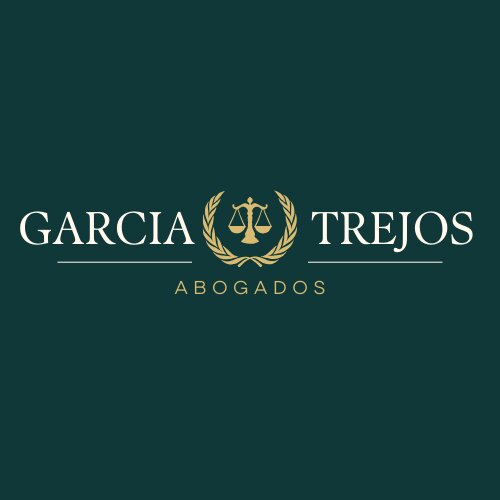Best Discrimination Lawyers in Chitré
Share your needs with us, get contacted by law firms.
Free. Takes 2 min.
List of the best lawyers in Chitré, Panama
About Discrimination Law in Chitré, Panama
Discrimination in Chitré, Panama, as in other parts of the country, is a significant concern addressed by national and local laws. Discrimination refers to unjust or prejudicial treatment based on various attributes, including race, gender, age, disability, religion, sexual orientation, and more. Panama's legal framework aims to protect individuals from discrimination in several facets of public and private life, including employment, education, housing, and access to services. In Chitré, residents have access to both national protections and any local initiatives aimed at fostering equality and respect.
Why You May Need a Lawyer
There are several situations where individuals in Chitré might require legal assistance regarding discrimination. Common scenarios include facing workplace discrimination, being denied housing based on race or other characteristics, experiencing discrimination in education, or encountering biased treatment in places providing goods and services. A lawyer specializing in discrimination can help individuals understand their rights, navigate the legal system, and represent their interests in disputes or lawsuits.
Local Laws Overview
The Republic of Panama enforces anti-discrimination laws through various legislative instruments. The Constitution of Panama guarantees equality and prohibits discrimination on grounds such as race, sex, and social class. Key labor laws, like the Labor Code, protect employees from workplace discrimination. Schools and educational institutions must adhere to regulations ensuring equal access and non-biased treatment to students. Local municipalities, including Chitré, may also implement specific policies or initiatives addressing discrimination to complement national mandates.
Frequently Asked Questions
What constitutes discrimination under Panamanian law?
Discrimination is any unjust differential treatment based on personal characteristics like race, gender, nationality, disability, or ideology, among others. It can manifest in employment, education, and access to public services.
How are discrimination cases processed in Chitré?
Discrimination cases in Chitré can be addressed through administrative complaints filed with government agencies or through civil litigation. A lawyer can guide you through the appropriate channel depending on the circumstances.
What are the possible outcomes of a discrimination lawsuit?
Outcomes can include financial compensation, the reinstatement of employment, rectification of a denial of access to services, or implementation of policies to prevent future discrimination.
How do I prove a case of discrimination?
Proof may involve gathering documents, witness testimonies, and any tangible evidence demonstrating discriminatory treatment. Legal counsel can provide strategies for compiling relevant evidence.
Is there a time limit to file a discrimination complaint?
Yes, there are prescribed time limits, known as statutes of limitations, for filing complaints, which can vary based on the type of discrimination. Consulting with a lawyer promptly can ensure compliance with these timelines.
Who enforces anti-discrimination laws in Panama?
Enforcement is typically conducted by the relevant government ministries responsible for labor, justice, and social development, often supported by local government efforts.
Can I settle a discrimination case out of court?
Yes, many cases can be resolved through mediation or settlement negotiations, offering a quicker resolution compared to litigation.
What should I do if I witness discrimination?
Witnesses can provide crucial support in discrimination cases. They can report the incident to authorities or offer testimony in support of the affected individual.
Are there support organizations available in Chitré?
Various non-governmental organizations and advocacy groups focusing on human rights and anti-discrimination can offer support, guidance, and sometimes legal assistance.
How does one access free legal aid for discrimination cases?
Free legal aid may be available through government programs or legal clinics provided by local law schools and non-profit organizations.
Additional Resources
For those seeking additional assistance, the Ministry of Labor and Workforce Development (MITRADEL) is instrumental in handling employment discrimination cases. The Public Defender’s Office can provide guidance on various legal processes. Local NGOs, such as the Panamanian Human Rights Association, can offer support and resources for those affected by discrimination.
Next Steps
If you need legal assistance regarding discrimination in Chitré, it is advisable to start by consulting a lawyer with expertise in discrimination law. Prepare by documenting all relevant details and evidence related to your case. You might also consider contacting local advocacy groups or government agencies that can provide additional support and information. Engaging with these resources early on can greatly enhance your understanding of your rights and the legal remedies available to you.
Lawzana helps you find the best lawyers and law firms in Chitré through a curated and pre-screened list of qualified legal professionals. Our platform offers rankings and detailed profiles of attorneys and law firms, allowing you to compare based on practice areas, including Discrimination, experience, and client feedback.
Each profile includes a description of the firm's areas of practice, client reviews, team members and partners, year of establishment, spoken languages, office locations, contact information, social media presence, and any published articles or resources. Most firms on our platform speak English and are experienced in both local and international legal matters.
Get a quote from top-rated law firms in Chitré, Panama — quickly, securely, and without unnecessary hassle.
Disclaimer:
The information provided on this page is for general informational purposes only and does not constitute legal advice. While we strive to ensure the accuracy and relevance of the content, legal information may change over time, and interpretations of the law can vary. You should always consult with a qualified legal professional for advice specific to your situation.
We disclaim all liability for actions taken or not taken based on the content of this page. If you believe any information is incorrect or outdated, please contact us, and we will review and update it where appropriate.








